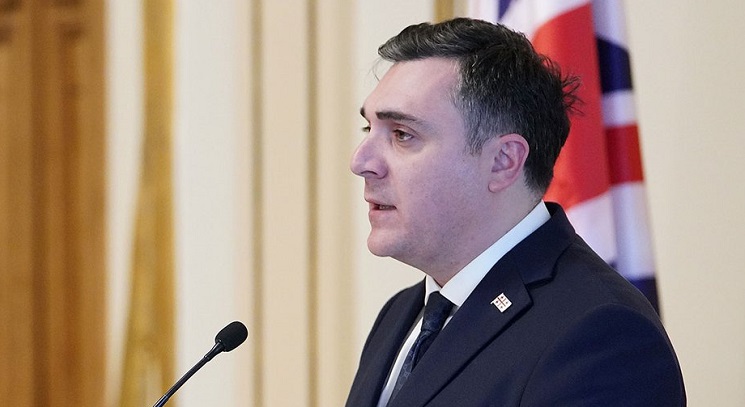Georgian FM in “important meetings” with EU Commission to facilitate European integration - Ambassador

Georgian FM will start his meetings in Brussels on Tuesday. Photo: Ilia Darchiashvili’s Twitter
Georgian Foreign Minister Ilia Darchiashvili will on Tuesday have “important meetings” with officials at the European Commission ahead of the body’s reports on the country’s European Union membership candidate status, Vakhtang Makharoblishvili, Georgia’s representative to the bloc, has told the media.
In his comments on Tuesday, the diplomat said the meetings would involve Josep Borrell, the Vice-President of the European Commission and the High Representative of the EU for Foreign Affairs and Security Policy, and the EU commissioners for enlargement, justice and home affairs.
He said the discussions would review Georgia’s implementation of the conditions set by the bloc in June of last year for obtaining its membership candidate status, as well as domestic matters and security challenges sparked on the backdrop of the ongoing Russia-Ukraine conflict.
Makharoblishvili stressed the discussions were “important” ahead of the Commission's interim report “in a few months” about the country’s alignment with the EU framework, and highlighted the body was scheduled to produce a final report in October and issue its recommendations to the European Council whether to grant Georgia the membership candidate status, which the country applied for last year.
He said the Georgian Government had already started to provide necessary documentation and information to the Commission for drafting the reports.
The diplomat highlighted the Commission's 57-page analytical report on Georgia - released in February and focused on the country’s alignment with EU laws in 33 chapters - had created “positive expectations” to forthcoming assessments.
He added Georgia would be evaluated “in many directions” - including sectoral alignment with the bloc and reforms related to the country’s democratic development and the domestic judiciary - by the end of this year, before the EU decision on the membership candidate status.
Makharoblishvili stressed it was important for Tbilisi to have “genuine reforms already implemented” by the time of the Commission’s assessment, to ensure a “positive conclusion” and recommendation from the body to the EU Council to grant the country the requested status.
 Tweet
Tweet  Share
Share